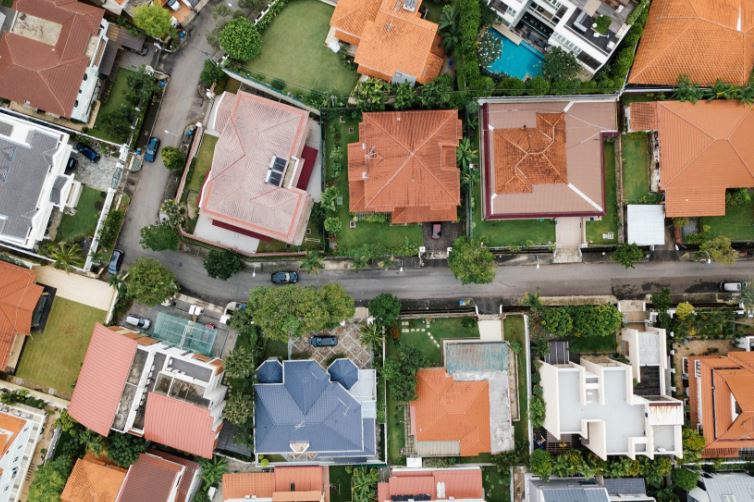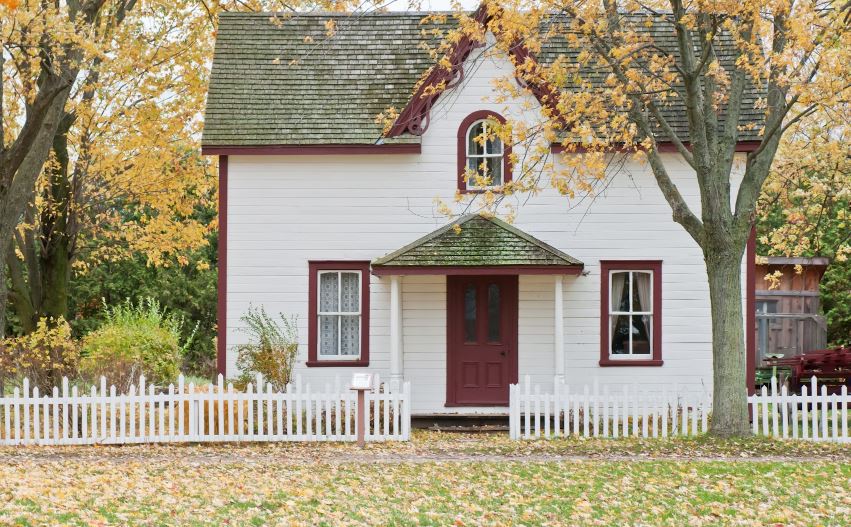Thinking about buying a house but worried about the high prices? HUD homes might be perfect for you!
These are houses owned by the government and are sold at a discount.
In this post, I’ll go over what are HUD homes, who can buy them, how to find them, their pros and cons, and how you can buy one.
What Is A HUD House?
A HUD home is a property that has been foreclosed on and is now owned by the United States Department of Housing and Urban Development (HUD).
When a homeowner defaults on their FHA-insured mortgage, the lender forecloses on the home and takes possession of it.
The lender then conveys the property to HUD and makes an insurance claim to recover their losses.

HUD becomes the property owner and sells these homes to recoup the insurance payout.
HUD homes are properties that the government is promoting to people, and they are often sold below market value which makes them a good deal.
Also Read: Types of Distressed Properties
Can Anyone Buy A HUD Home?
Yes, with some stipulations, anyone can buy a HUD home
HUD has certain eligibility requirements and restrictions on who can purchase their real estate owned (REO) properties.
Here are the most important ones:
- You'll need to be able to secure financing for the house, either cash or a mortgage.
- You'll need to use a HUD-registered real estate agent or broker to place a bid on your behalf. You can’t do it yourself.
- HUD prioritizes selling to owner-occupants - who will live in the house as their primary residence (at least 12 months).
They get an exclusive 30-day window to bid on the property before it opens up to investors.
- You must also be able to certify that you have not been suspended or debarred from any federal program.
- There might be additional restrictions for first-time homebuyers.
As long as you meet the basic criteria, you can submit an offer to purchase a HUD property.
Where Do You Find HUD Homes?
HUD lists all their available REO homes for sale on their website HUDHomeStore.gov.
You can browse homes regionally and filter searches using criteria like price, number of bedrooms, property type, etc.
Many real estate sites like Zillow and Realtor.com also include HUD listings in their foreclosure inventory.
You can work with a buying agent to access the multiple listing service (MLS) and find HUD homes for sale in your desired area too.
Auctions are another way HUD homes are sold.
Auction.com handles the auction process and lists upcoming HUD auctions by state.
Pros And Cons Of HUD Houses
Buying a HUD foreclosure has some notable upsides but also comes with risks to weigh.
Pros
The biggest pro of HUD homes is that they are often priced below the current market value.
You can get a pretty good deal most of the time.
Plus, they’ll be ready to move in. HUD homes are in decent shape and meet basic safety and livability standards before they're put up for sale.
This saves buyers from dealing with a bunch of repairs or upgrades right off the bat.
And since HUD homes usually sell for less than what you'd pay on the regular market, there's a chance they could go up in value over time.
So, if the housing market perks up, the property you bought for a deal might turn into a solid investment down the road.
Cons
The biggest con of HUD homes is that they are sold "as-is," meaning you're responsible for any repairs or renovations the house may need.
And the extent of repairs needed in a HUD home are unknown too.
These repairs can be extensive and costly, so a thorough inspection is crucial.
HUD homes may have been vacant for a while so there could be problems like vandalism, neglect, or pest infestations as well.
The bidding and buying process for a HUD home can take longer too.
So be prepared to wait for inspections and repairs.
And if you buy the home as an owner-occupant you have to live there for 12 months. And you can’t buy another HUD home for 2 more years.
How To Buy A HUD Home
Here’s how to buy a HUD home:
#1 Get Pre-Approved
The very first thing you need to do is get pre-approved for a mortgage loan.
Since HUD requires buyers to secure their own financing, you'll need a pre-approval letter from a lender to make an offer.
The lender will review your credit score, income, and existing debts to determine how much money they can lend you for a home.
A pre-approval letter shows the HUD that you are a serious buyer.
#2 Hire A HUD-Approved Real Estate Agent
The next thing you should do is hire a HUD-approved real estate agent.
You cannot do this alone - you need an agent.
These agents are specially trained and certified, and will guide you through the process
Before you hire one, you might want to talk to a HUD-approved housing counselor first. They’ll help you understand the HUD purchase process and programs available.
#3 Find HUD Homes
Now it's time to find HUD homes.
You can also browse home listings online through the HUD website and real estate sites.

Your agent should be able to help too. They have access to all the HUD-owned property listings and can identify good options that fit what you're looking for.
Once you find properties you are interested in, you will need to carefully review the listing details to understand the home’s current condition.
Take time to evaluate each home and neighborhood before moving forward.
#4 Get A Home Inspection
Once you find a HUD home you're interested in, you should have a professional home inspection done.
These homes are being sold “as-is” so you need to know about any defects or problems.
The inspector will thoroughly examine the electrical, plumbing, roof, structure, appliances and other stuff. And the report will reveal all the repairs needed.
Also Read: Household Hazardous Materials
Now you should be able to make an informed decision and adjust your offer price if needed.
#5 Submit Your Offer
When you're ready to make an offer, ask your real estate agent to submit the bid through HUD's bidding system.
You can't do this directly as the buyer.
HUD accepts the highest bid that meets or exceeds their minimum acceptable price.
#6 Closing The Sale
Once your offer is accepted, the closing process is similar to a typical home purchase.
The earnest money deposit must be wired to escrow. You will finalize loan approval and review the purchase contract. Title work and appraisal will be completed.
On closing day, you’ll wire the rest of the funds.
The keys are turned over and the home is yours!
HUD Incentive Programs
HUD offers a few programs to help make the purchase of a HUD home more affordable:
- The Good Neighbor Next Door program offers a 50% discount to law enforcement officers, teachers, firefighters and emergency medical technicians.
- The $100 Down Payment program allows buyers to purchase a HUD home with only $100 down if they are a first-time homebuyer and complete housing counseling.
- HUD also provides closing cost assistance grants on certain properties to help offset transaction costs.

